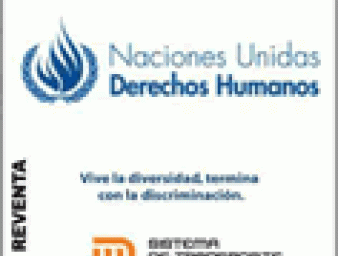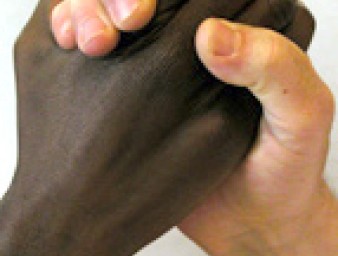Reflecting on the journey towards equality
26 March 2024
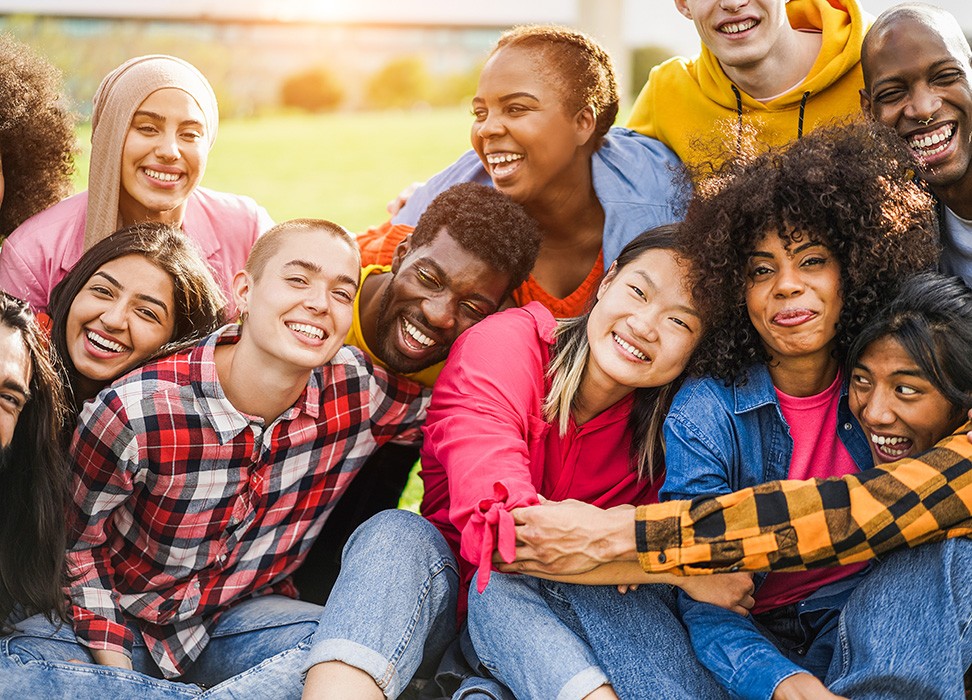
“If we do not occupy this great avenue in which we all can recognise ourselves from our human identity, we will not achieve the dream looming on the horizon, which is the dream of dignity for all people,” said Epsy Campbell Barr, former Vice-president of Costa Rica, and a member of the Permanent Forum on People of African Descent.
Every year, the International Day for the Elimination of Racial Discrimination is observed on 21 March, the same day the police in Sharpeville, South Africa, opened fire and killed 69 people at a peaceful demonstration against apartheid "pass laws" in 1960.
“The history goes back to South Africa, where apartheid placed Black people at the bottom of the rights ladder in that country,” Campbell Barr said.
By proclaiming this International Day in 1966, the General Assembly urged the international community to reinforce its efforts to combat racism and eliminate all forms of racial discrimination. This year’s theme focuses on “A Decade of Recognition, Justice, and Development: Implementation of the International Decade for People of African Descent”, in reference to the International Decade for People of African Descent, which has lasted from 2015 to 2024.
“
People of African descent are the victims of the worst human tragedy that humanity has experienced for a long enough period of time to have consequences in the present, and that is the transatlantic trafficking of African people and their subsequent enslavement.
“
Epsy Campbell Barr, former Vice-president of Costa Rica, and member of the Permanent Forum on People of African Descent
The UN High Commissioner for Human Rights has served as the coordinator for the International Decade, overseeing various activities from the Fellowship programme for people of African descent, the enhancing of the anti-discrimination database, the preparation of annual reports for the Secretary General, to the promotion and awareness raising on the International Decade, including through the organization of regional meetings around the globe to further advance the objectives of the Decade.
“The relevance of the International Decade is that globally, nations agree that there is a human group, people of African descent, who are at a relative disadvantage that is great enough to prioritise action for 10 years,” Campbell Barr said. “If people of African descent are not recognised, if people do not understand that we are part of the population, if they do not understand the conditions we are in, if they do not put the issue of systemic racism, anti-Black and anti-Black African racism, as a central issue, it is impossible to achieve justice and development.”
“The International Decade has to be understood as part of the global agenda of the United Nations, it has to be understood as part of the 2030 Agenda for Sustainable Development. It is necessary to insert the International Decade in the great promise to 'leave no one behind'. But in the case of people of African Descent, it is 'don’t keep us behind,' which is a very different thing,” Campbell Barr said.
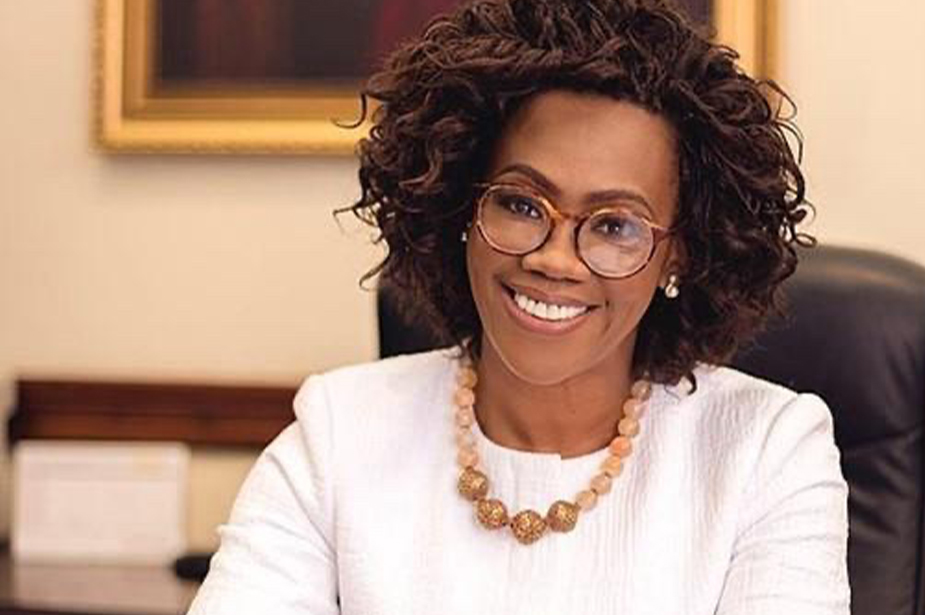
Epsy Campbell Barr. Credit: CC BY-SA 4.0/Crnoticiascr.
Martha Liliana Meza Castillo, a Colombian Black woman, sociologist, journalist who specializes in conflict, peace, education and human rights, has worked with Black communities in Colombia in the context of the armed conflict in this country. By her own initiative, she promoted the International Decade to inform Afro-descendants about their rights and how this tool could be useful to them.
“A second International Decade is important because it is necessary to continue working in the fight against racial and systematic discrimination and injustice, even if it sounds repetitive and they say that we are victimising ourselves. It is a reality that we are living, and as a society we still have a long way to go, especially in terms of justice and the recognition of the historical contribution that people of African descent have made to societies,” Meza Castillo said. “We have to continue on this path to achieve the objectives of a more just and dignified society.”
According to Meza Castillo, there was not enough support by the government and the International Decade was promoted by word of mouth among Black communities in Colombia, which was very useful, with people saying: “at the UN there is a mandate for us now, the government has to start fulfilling it.”
For her, the International Decade inspired the inclusion of an ethnic chapter in the negotiation of the peace accords in the South American country.
“I believe that the International Decade inspired these communities to demand from the government a place, a space and a leading role at the negotiating table, to achieve recognition of the disproportionate impact that the ethnic communities have endured during the armed conflict and the demand of no repetition,” Meza Castillo said.
“
A second International Decade is needed because people of African descent remain the poorest amongst the poorest, because political representation systemically excludes people of African descent, because racism remains systemic, and because we need to redress the consequences of enslavement that are manifested today in the lives of millions of people of African descent.
“
Epsy Campbell Barr, former Vice-president of Costa Rica, and member of the Permanent Forum on People of African Descent
For Campbell Barr, in various countries, the International Decade has made it possible to advance specific public policies based on the recognition of people of African descent, both through the implementation of affirmative actions and specific awareness-raising campaigns.
“In terms of justice and development we have not made any progress, because the judicial systems are the same, because the colonial structure still places Black people in a real denial of rights,” Campbell Barr said. “For example, in the over-representation of Black people and Black youth in the prison system, the injustice against Afro-descendants where we can see the triple punishment for being an Afro-descendant.”
“They are punished because all their rights are taken away and they are then in a situation of exclusion. This situation of exclusion makes them much more vulnerable to criminal networks and illegal activities for which they are literally kidnapped and because the justice system already has a subjective burden to place them in a situation of greater vulnerability due to their racial ethnic identity,” Campbell Barr said.
According to Campbell Barr, there has been no progress in terms of development, as the data and social and economic indicators of many countries continue to show that people of African descent are at the end of the line.
“It is important to give a stronger voice to the diversity of Afro-descendant voices in development debates because racial discrimination also takes away people's voices and it is necessary to listen to the voices of those who historically have not been able to say what they think, put forward their perspectives and bring to the debate their energies and that spiritual, emotional and cultural logic that is so necessary,” Campbell Barr said.
Informing other struggles
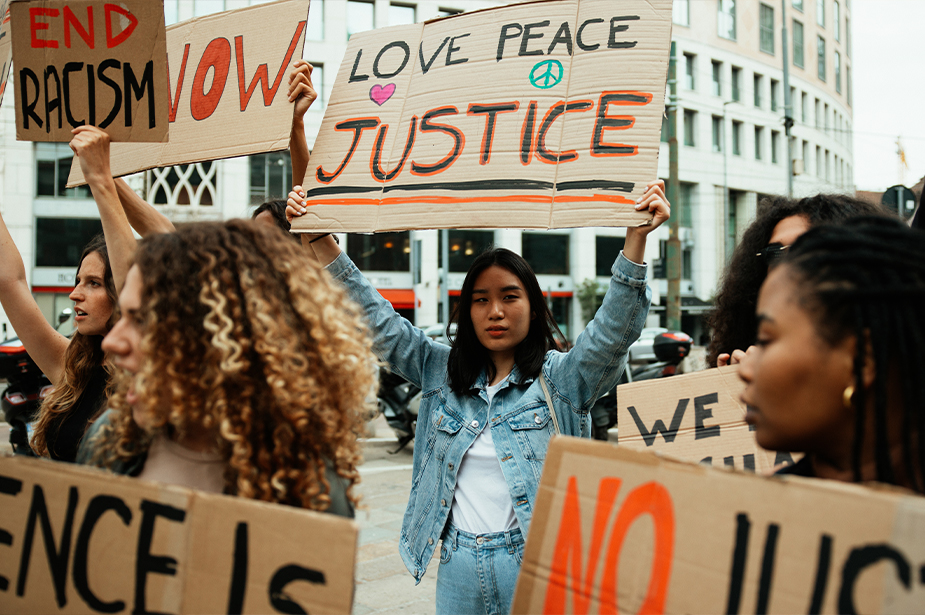
People protest against racism and demand justice. Credit: Getty Images/Leo Patrizi.
“I think struggles are absolutely intertwined. What we are striving for is a new pact, a pact that gives equal dignity to all people,” Campbell Barr said. “The efforts we Afro descendants make have an impact on the inclusion and rights of the most excluded sectors of the population, and everything we do makes sense for these groups, for indigenous peoples, for women, for people with disabilities, for migrants.”
There is no way to understand the struggle against systemic racism without understanding the social, economic, and cultural structure that ranks people based on their diverse identities, she added.
“Our struggle is the struggle of all people who are demanding dignity, that dignity that we deserve just because we are people,” Campbell Barr said. “Let's not fool ourselves, let's not try to imagine that we could survive in a structure of discrimination by saving some and leaving the rest out.”
